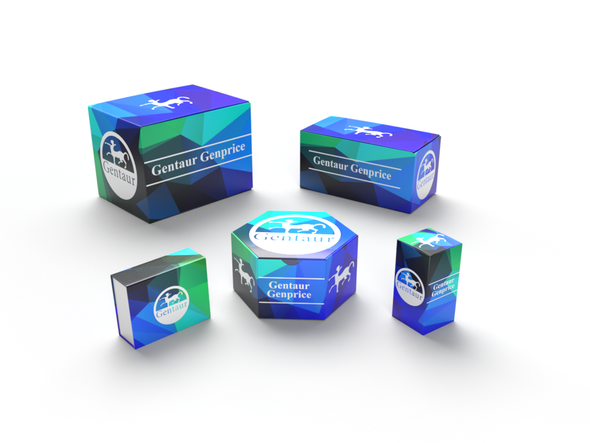749
Human 25-hydroxy vitamin D3 (25 HVD3) ELISA Kit | KTE60833
- SKU:
- 749-KTE60833
- Availability:
- Usually ships in 5 working days
Description
Human 25-hydroxy vitamin D3 (25 HVD3) ELISA Kit | KTE60833 | Gentaur UK, US & Europe Distribution
Application: This Human 25-hydroxy vitamin D3 (25 HVD3) ELISA Kit employs a two-site sandwich ELISA to quantitate 25 HVD3 in samples. An antibody specific for 25 HVD3 has been pre-coated onto a microplate. Standards and samples are pipetted into the wells and any25 HVD3 present is bound by the immobilized antibody. After removing any unbound substances, a biotin-conjugated antibody specific for 25 HVD3 is added to the wells. After washing, Streptavidin conjugated Horseradish Peroxidase (HRP) is added to the wells. Following a wash to remove any unbound avidin-enzyme reagent, a substrate solution is added to the wells and color develops in proportion to the amount of 25 HVD3 bound in the initial step. The color development is stopped and the intensity of the color is measured.
Detection Method: Colorimetric
Conjugate: N/A
Sample Type: Cell culture supernatants#Serum#Plasma#Other biological fluids
Assay Type: Multiple steps standard sandwich ELISA assay with a working time of 3-5 hours. It depends on the experience of the operation person.
Kit Component: • Human 25-hydroxy vitamin D3 microplate
• Human 25-hydroxy vitamin D3 standard
• Human 25-hydroxy vitamin D3 detect antibody
• Streptavidin-HRP
• Standard diluent
• Assay buffer
• HRP substrate
• Stop solution
• Wash buffer
• Plate covers
Features & Benefits: Human 25-hydroxy vitamin D3 (25 HVD3) ELISA Kit has high sensitivity and excellent specificity for detection of Human 25 HVD3. No significant cross-reactivity or interference between Human 25 HVD3 and analogues was observed.
Calibration Range: Please inquire
Limit Of Detection: Please inquire
Usage Note: • Do not mix components from different kit lots or use reagents beyond the kit expiration date.
• Allow all reagents to warm to room temperature for at least 30 minutes before opening.
• Pre-rinse the pipet tip with reagent, use fresh pipet tips for each sample, standard and reagent to avoid contamination.
• Unused wells must be kept desiccated at 4 °C in the sealed bag provided.
• Mix Thoroughly is very important for the result. It is recommended using low frequency oscillator or slight hand shaking every 10 minutes.
• It is recommended that all samples and standards be assayed in duplicate or triplicate.
Storage Instruction: The unopened kit should be stored at 2 - 8°C. After opening, please store refer to protocols.
Shipping: Gel pack with blue ice.
Precaution The product listed herein is for research use only and is not intended for use in human or clinical diagnosis. Suggested applications of our products are not recommendations to use our products in violation of any patent or as a license. We cannot be responsible for patent infringements or other violations that may occur with the use of this product.
Background: Calcifediol is a prehormone which is produced by hydroxylation of vitamin D3 (cholecalciferol) in the liver. Calcidiol is then converted in the kidneys (by the enzyme 25 (OH) D-1α-hydroxylase) into calcitriol (1, 25- (OH) 2D3), a secosteroid hormone that is the active form of vitamin D. It can also be converted into 24-hydroxycalcidiol in the kidneys via 24-hydroxylation. In medicine, blood concentration of calcidiol is considered the best indicator of vitamin D status. It is the most sensitive measure, though experts have called for improved standardization and reproducibility across different laboratories. The normal range varies widely depending on several factors, including age and geographic location. A broad reference range of 20–150 nmol/L has been suggested, while several studies have defined levels below 80 nmol/L as indicative of vitamin D deficiency.
Alternative Names: 25 HVD3
Search name: 25 HVD3
Tag: 25 HVD3










